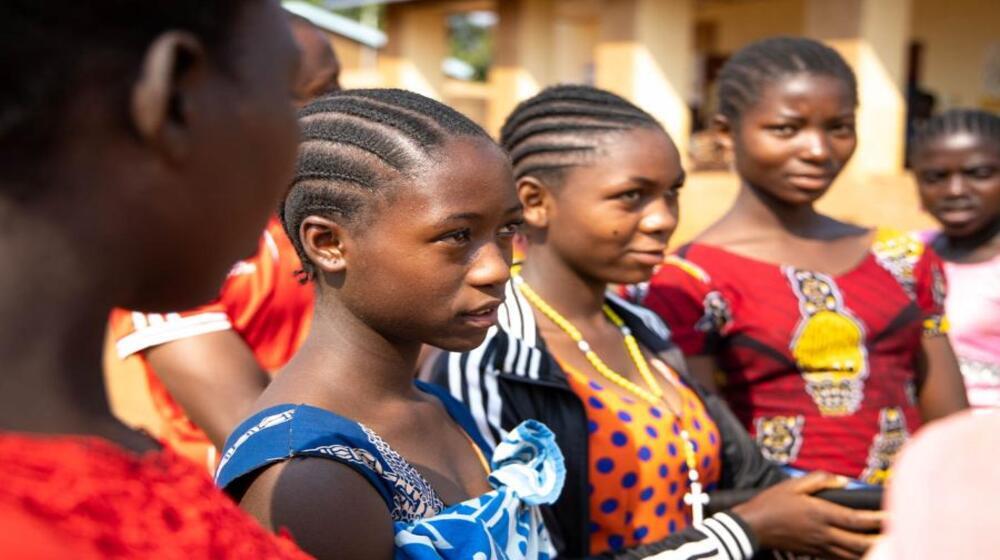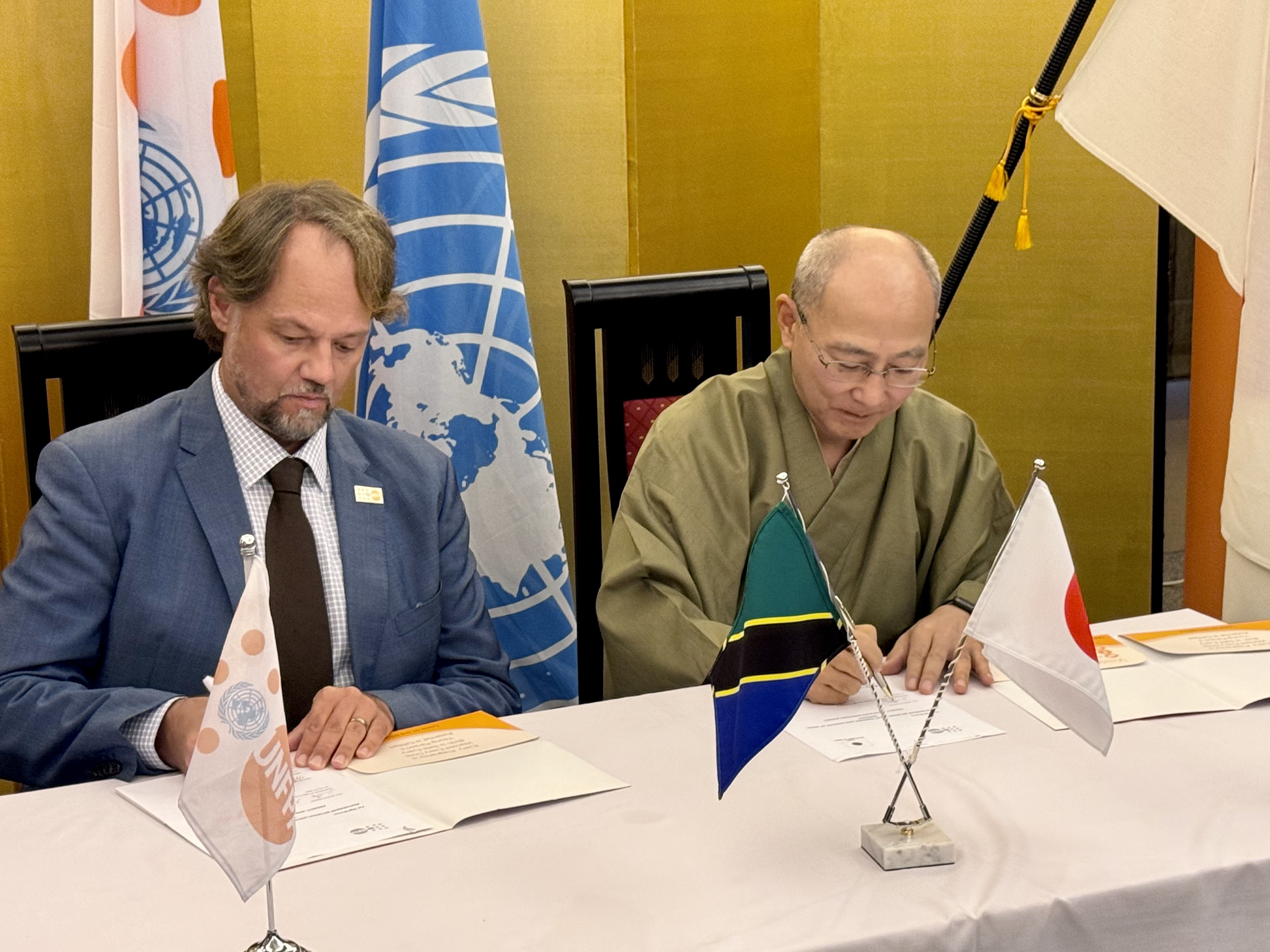
JAPAN PARTNERING WITH UNFPA TO SUPPORT MATERNAL HEALTH SERVICES IN KIGOMA
Dar es Salaam,
The Embassy of Japan in Tanzania and UNFPA, the United Nations sexual and reproductive health agency, today signed a funding agreement for support to sustain life-saving interventions to prevent maternal death in Nyarugusu and Nduta refugees camps in Kasulu and Kibondo districts respectively as well as the host communities of the Kigoma region.
The signed agreement allocates USD 359,964 (Equivalent to TZS 921,000,000) to supply reproductive health commodities in the refugee camps and the host community over 2024. Additionally, funds will procure essential medical equipment and train frontline health workers to ensure the delivery of quality sexual and reproductive health services.
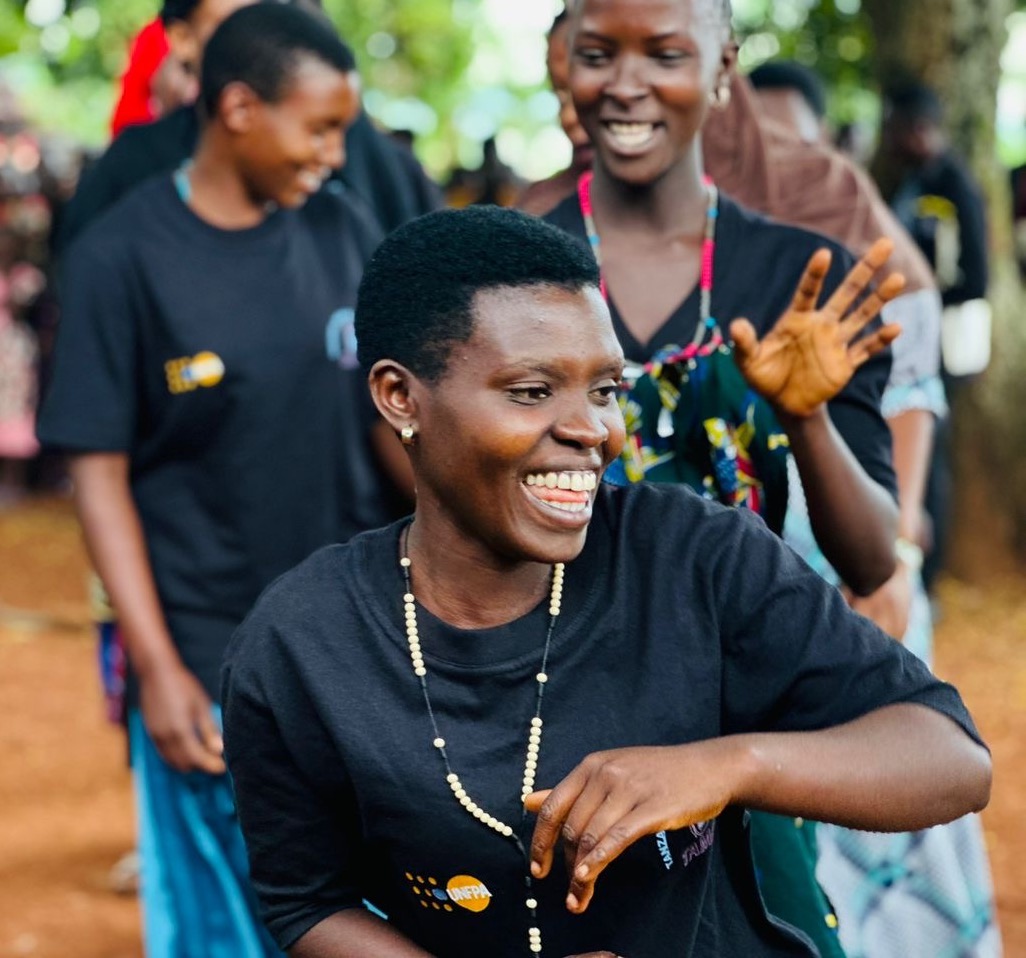
Over 113,000 individuals, encompassing women, adolescent girls and boys, first-time young mothers, among others, stand to benefit from this new partnership between Japan and UNFPA.
At the signing ceremony in Dar es Salaam, His Excellency Mr. Yasushi Misawa, Japan’s Ambassador to Tanzania, emphasised,
“Japan is committed to improving the health of people around the world by achieving Universal Health Coverage”.
Japan's dedication extends beyond health initiatives. Driven by its global leadership in universal health coverage and its human security policy, Japan invests in projects that improve livelihoods of women and protect women and children affected by conflicts and natural disasters.
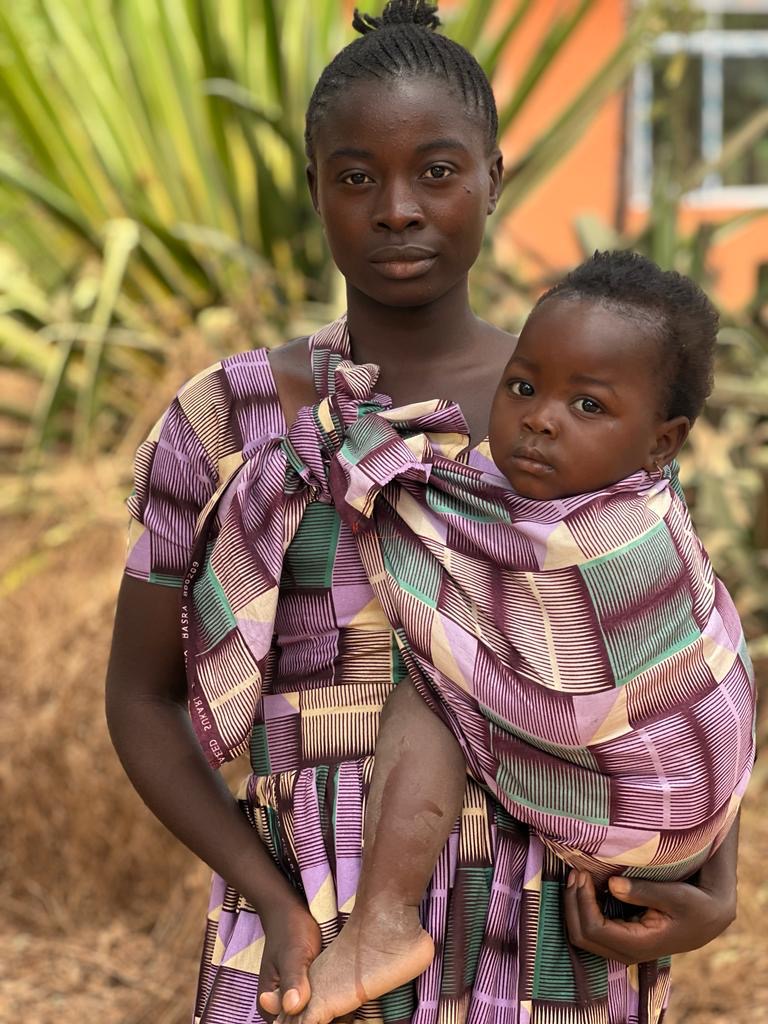
Mr. Mark Bryan Schreiner, UNFPA's Country Representative to the United Republic of Tanzania, commented,
“UNFPA is on the ground delivering for women & girls. Thanks to Japan funding, UNFPA is delivering life-saving care to women & girls in Nyarugusu and Nduta camps being hosted by the United Republic of Tanzania..”
On average, Nyarugusu and Nduta camps witness approximately 2,004 pregnancies every month, with approximately 201 women encountering complications or resulting in miscarriages.
While UNFPA and collaborating organisations achieved zero maternal deaths in Nyarugusu refugee camp in 2022, the recent influx of asylum seekers from Democratic Republic of Congo has further strained the healthcare infrastructure within the camps. This strain, coupled with potential deficiencies in Emergency Obstetric and Neonatal Care (EmONC), sexual and reproductive health (SRH), and gender-based violence (GBV) services, heightens the risk of maternal and neonatal mortality and unwanted pregnancies.
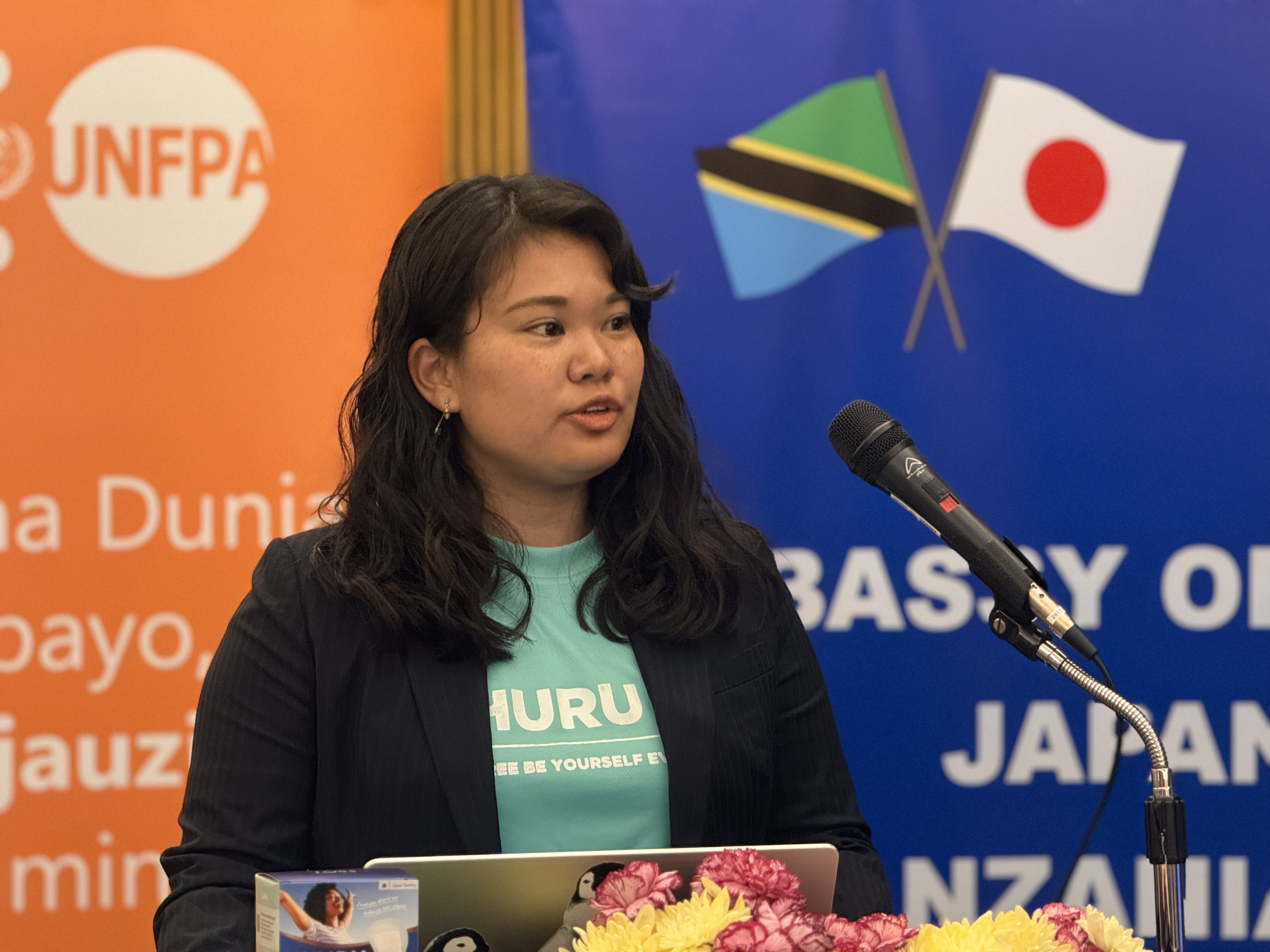
UNFPA is collaborating with its’ camp-based and host community implementing partners, namely the Tanzania Red Cross Society (TRCS), Kigoma Regional Administrative Secretary (RAS Kigoma) and Borderless Tanzania Limited, a group company of Borderless Japan Corporation.
Japan's financial assistance underscores its enduring commitment to addressing humanitarian crises through a human security lens. These funds are channelled through various institutions, including UNFPA.
Japan stands as a global leader in advocating for universal health coverage. Within these endeavors, Japan prioritizes strengthening sustainable health systems that ensures comprehensive and continuous care for mothers and children. To achieve this, Japan focuses on providing essential services accessible to women at all stages of pregnancy, including adolescence and family planning, as well as for newborns and infants. Japan also has been steadfast partner for investment in women's livelihoods, safeguarding those affected by conflicts and natural disasters, and championing women's participation in societal roles.
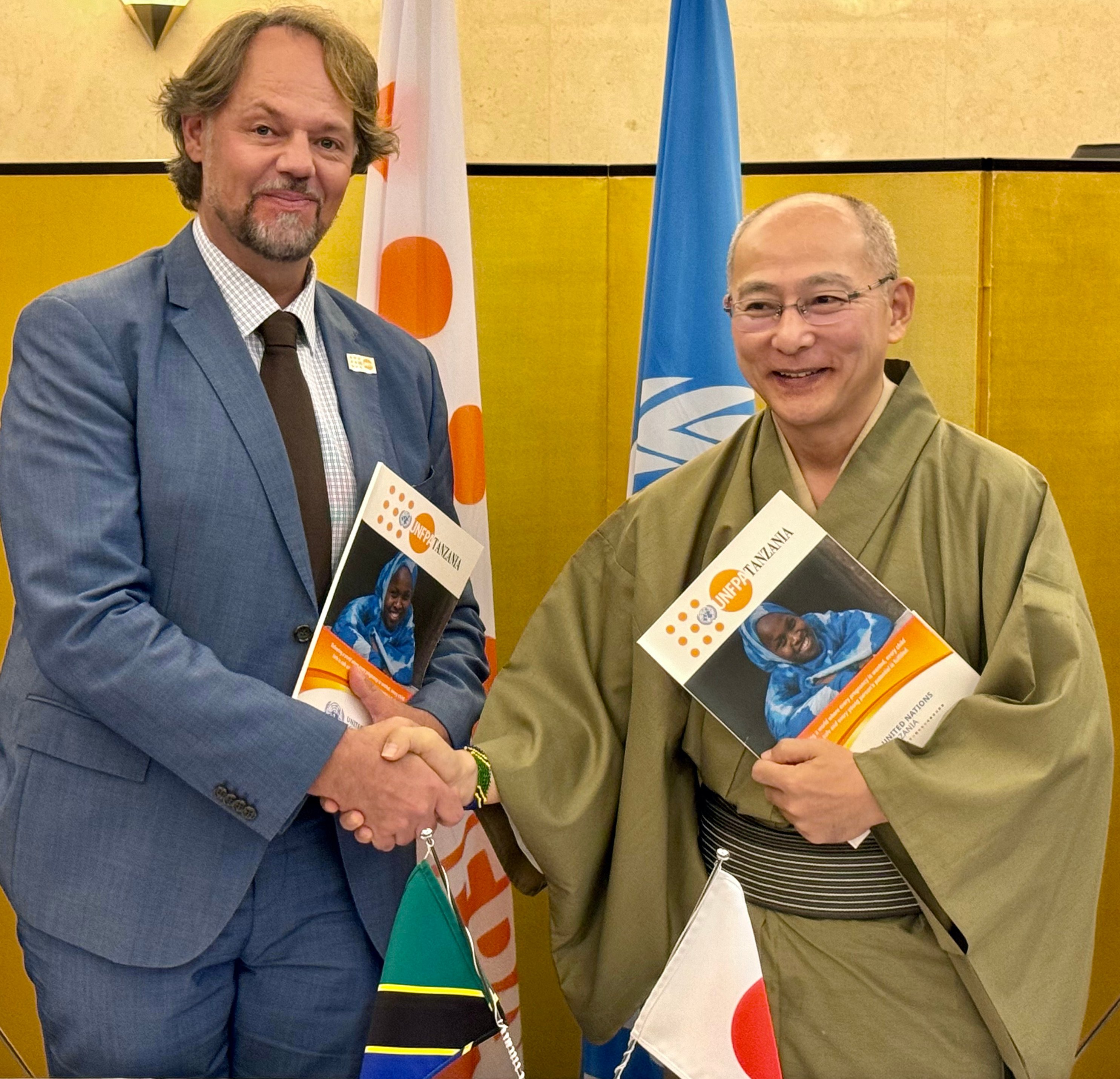
Japan’s partnership with UNFPA aims to enhance the health and well-being of women and children. Key areas of joint action encompass delivering reproductive health services in conflict zones, establishing safe spaces, combating gender-based violence, and improving access to maternal, newborn, and emergency obstetric care across the Middle East and Africa. Additionally, Japan and UNFPA collaborate on population-related topics, including ageing, low fertility rates, and human security.
Highlighting its commitment, Japan secured the position as the second-largest humanitarian donor in 2022 and ranked among the top ten contributors to UNFPA's core resources.
Ends

